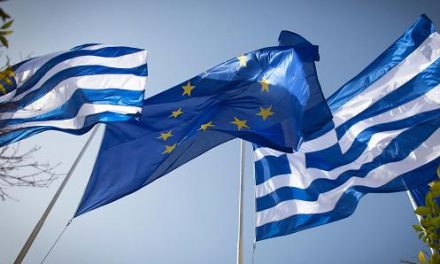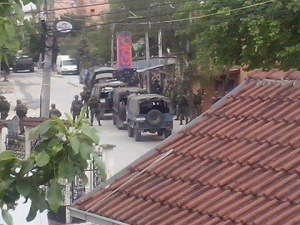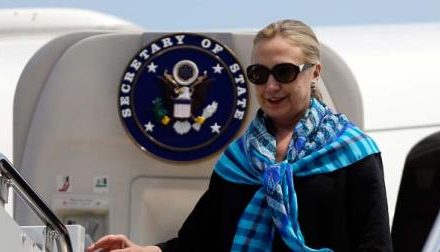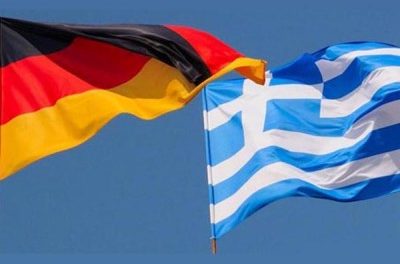By Edward G. Stafford, Ahval
U.S. President Donald Trump has assembled a senior foreign policy team that reflects his worldview of 1) putting America first; 2) avoiding multilateral arrangements; and 3) not concerning himself with the internal affairs of other countries (unless they affect U.S. interests).
Though each brings different perspectives to foreign relations, the three senior officials most concerned with U.S. foreign relations – Defense Secretary James Mattis, Secretary of State Mike Pompeo and National Security Advisor John Bolton – largely share Trump’s foreign policy perspective.
Of these three, Bolton, serving both as a coordinator of the interagency policy formulation process and as the advisor closest to Trump, by location and policy biases, will likely play a larger role than either of the other two in counselling the president on relations with others.
Bolton, a former U.S. ambassador to the United Nations who also served under President George W. Bush as under-secretary of state for arms control and international security affairs , serves as the linchpin, keeping foreign policy aligned with Trump’s vision.
The last few weeks have served to highlight the perspective on relations with Turkey of this administration and its senior foreign policy. In the run-up to the elections in Turkey, arguably the most important in a generation, the United States carefully avoided being drawn into the domestic affairs of Turkey, scrupulously avoiding any hints one way or the other about U.S. preferences.
While this has been standard U.S. practice for some decades, subtle hints of Washington’s preferences could be detected.
Bolton, like his boss, sees no benefit for the United States to be identified with one side in a domestic struggle. In fact, without a clear advantage to the United States, Bolton has a record of opposing intervention . That said, if Bolton discerns a real opportunity to remove a regime that threatens the United States or its interests, or strengthen one demonstratively supportive of Washington, he would likely support overt or covert intervention in the domestic affairs of another state, for example, Iran.
Given that even if President Recep Tayyip Erdoğan had not won Turkey’s elections the first round on June 24, he would have gained large support in the country, having the United States identified with his opponents would not have served U.S. interests.
This hands-off approach to the election process will not apply to some of the more difficult issues between the United States and Turkey – extraditing U.S.-based preacher Fethullah Gülen, the man Turkey blames for the 2016 failed coup, U.S. relations with armed Kurdish groups, American citizens incarcerated in Turkey, Ankara’s purchase of Russian air defence systems, and sanctions against Turkey’s neighbour Iran.
Bolton opposed the Iran nuclear deal crafted by the Obama administration and five others nations, and played a strong role in persuading Trump to follow his instincts and withdraw from the agreement. His clear preference for applying strong sanctions against companies that do business with Iran has the potential to exacerbate tensions over Turkey’s import of Iranian oil and gas, and the sale of Turkish goods to Iran.
While there remain several months before the United States applies sanctions against those countries importing oil and natural gas from Iran, unless some waiver arrangement is developed , it is difficult to imagine Turkey being able to end imports of Iranian hydrocarbon given the serious financial pain that would result.
While Pompeo and Mattis might counsel a non-confrontational posture with Turkey over Iranian oil, to smooth diplomatic and military relations, one can expect Bolton would adopt a tough approach, expecting much in return for not sanctioning Turkish companies or banks doing business with Iran.
Bolton’s disdain for multilateral organisations, such as the UN, the OSCE, and regional groupings, does not extend to NATO. He sees NATO as a valuable instrument to support U.S. policy objectives . And, he expects NATO members to be fully loyal to NATO and support the United States within the alliance.
Turkey’s proposed acquisition of Russian S-400 air defence systems does not meet either of those two expectations. Bolton will likely counsel Trump to deliver a strong message to Erdoğan at the NATO summit that going ahead with the S-400 acquisition would not be appreciated and could cause serious damage to Turkey’s place in the alliance and its ability to rely on U.S. support. Of course, such a message would be delivered in private.
Not unlike the readout of the post-election phone call between Erdoğan and Trump, Bolton is unlikely to have the White House reveal the details of communications between Trump and Erdoğan. He prefers such conversations be kept secret.
On Americans allegedly held in Turkish jails, Bolton brings an interesting history to the issue. When an under-secretary at the State Department, Bolton crafted the reservations to the Rome Statute of the International Criminal Court and then spearheaded the negotiations of bilateral Article 98 agreements in which the other party agreed not to turn over U.S. officials or contracted personnel to the International Criminal Court.
Bolton has no sympathy for lawbreakers, but his scepticism about the independence foreign judiciaries has him predisposed to consider the arrest and detention of U.S. citizens to be more about politics than illegal activities. The case of Pastor Andrew Brunson is an example of what many Turks see as a domestic matter being considered by Bolton as unfair treatment of a U.S. citizen.
Bolton will continue the policy of his predecessors in distinguishing what he sees as bad Kurdish armed groups (the PKK and some of its offshoots) from good Kurdish armed groups (PYD/YPG in Syria and peshmerga in Iraq). While Turkey can accept the peshmerga as a legitimate and non-hostile force within Iraq , it categorically rejects the oft-made U.S. distinction between PYD/YPG and the PKK.
For the time-being, military and diplomatic efforts to prevent conflict between the United States and Turkey in and around the Syrian town of Manbij seem to have eased tensions , but as Syrian President Bashar Assad’s forces consolidate their control over Syria and the threat from Islamic State disappears as a reason for U.S.-YPG cooperation, one can expect Turkey to demand a complete cut-off of U.S. support to PYD/YPG elements.
Given Trump’s publicly stated preference for bringing home all U.S. forces from Syria, Bolton also surely prefers to see them withdrawn as long as it does not empower Iran’s clients.
Regarding Gülen, Bolton has almost no role to play – either the requirements of the extradition treaty are met or not , as determined by the Departments of State and Justice. One imagines that Bolton will be glad to restrict himself to keeping Trump informed about the impact of the extradition case without having to play a role in the decision process.
In sum, Bolton will coordinate U.S. foreign policy, to include relations with Turkey, to put U.S. interests first, avoid being constrained by others, and only intervene in others’ domestic affairs for demonstrable U.S. interests. Given his conviction that the United States and its allies must oppose Iranian efforts to develop nuclear weapons and to spread turmoil in the Middle East, improved relations between the two NATO allies will hinge greatly on Turkish cooperation with U.S. policy towards Iran, with the other aforementioned issues of less weight though still of consequence.


















